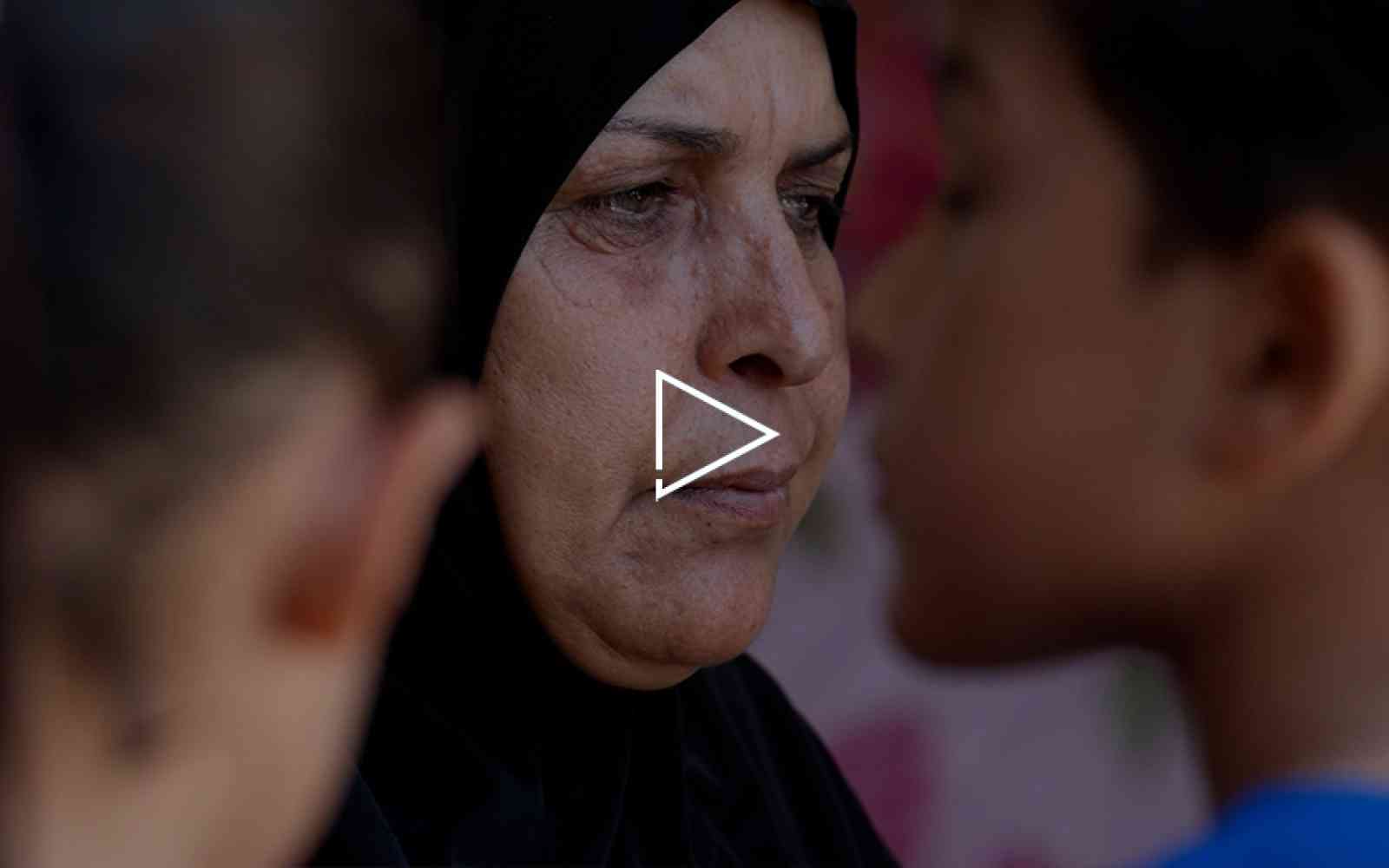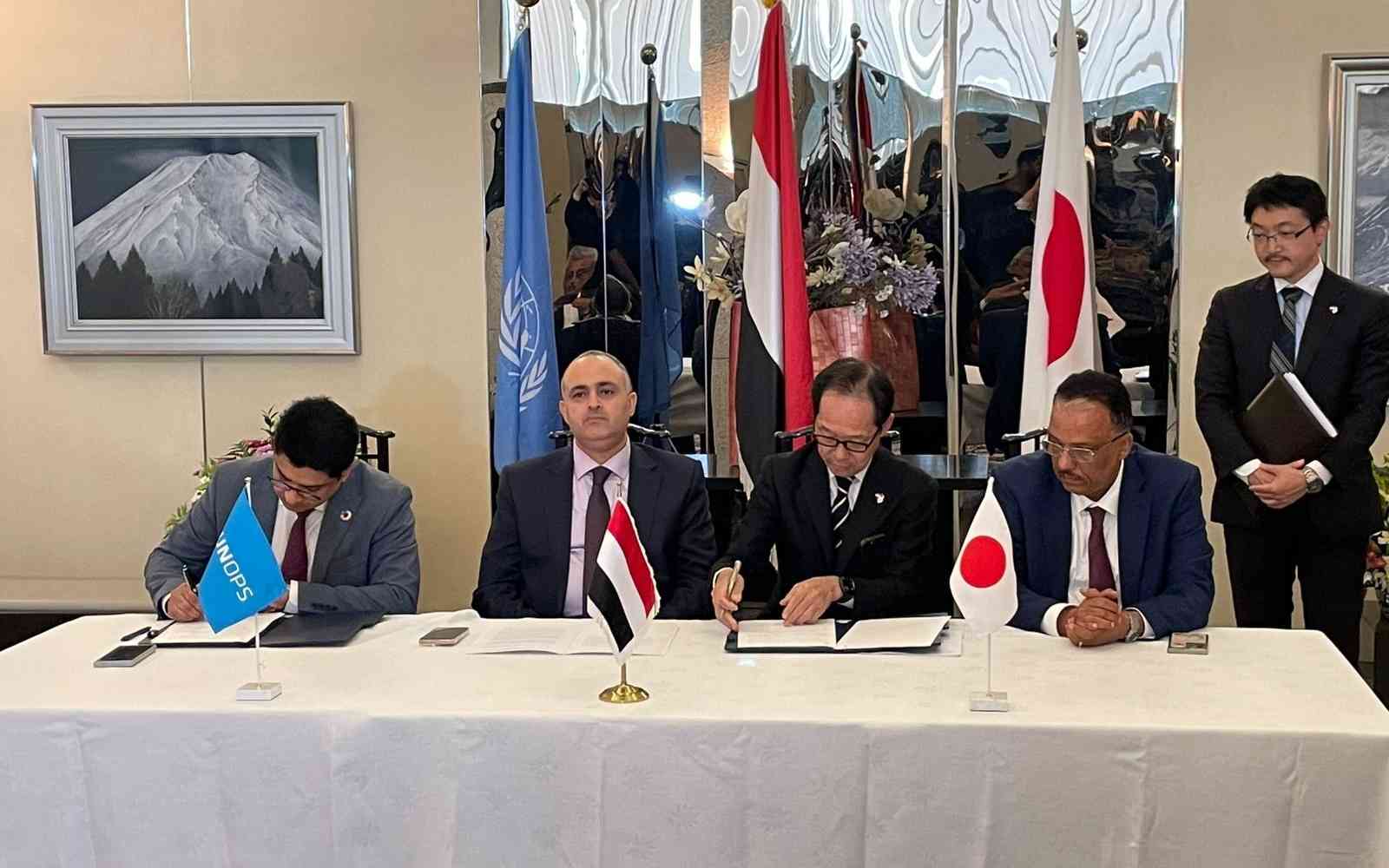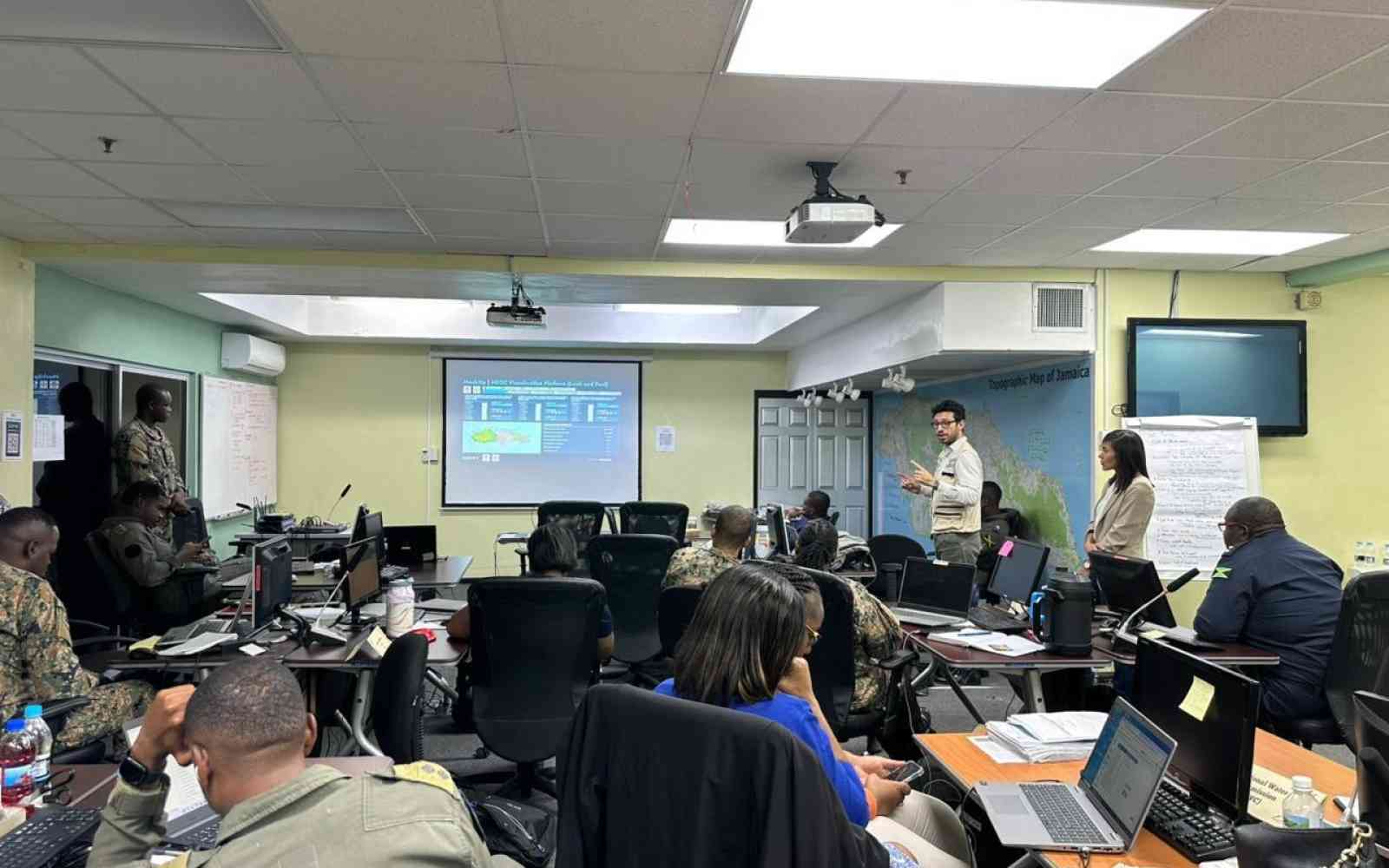The United Nations Office for Project Services (UNOPS)
Humanitarian hotline logs 100,000th call from displaced Iraqis

Operating in one of the most severe and complex crises in the world, the Iraq IDP Information Centre (Iraq IIC) recently handled its 100,000th call, marking a milestone in humanitarian efforts.
Since the beginning of 2014, conflict in Iraq has led to the unprecedented displacement of more than 3.3 million people, a number expected to increase by the end of 2017.
Based in Erbil, the Iraq IIC is an inter-agency hotline that provides information on humanitarian assistance to displaced families, enabling them to access the help they need, raise complaints, and provide feedback on the humanitarian response provided by aid agencies.
Access to critical information in an emergency is vital and the ability to stay connected is often a lifeline for displaced families.
"People call to find a missing loved one, to learn how to register for much-needed assistance, or how to get identification for children born during the conflict," said Charlotte Lancaster, the Iraq IIC Project Manager. "You really never know what the next call will be about."
As a country-wide, toll-free confidential number that gives people living in hard-to-reach areas a voice and a safe space to talk, the Iraq IIC has documented access and other critical protection issues, triggering assessment missions, interventions and coordinated responses.
People call to request assistance and to report allegations of sexual exploitation and abuse, other forms of abuse, as well as fraud, which the call center staff forward to relevant agencies.
The project also gathers data from callers to identify any needs that the people affected by the conflict might have, as well as gaps in services. The information is then shared with humanitarian aid organizations to help improve programming.
"Beyond listening, accountability within the humanitarian sphere is about ensuring that the humanitarian response is relevant to the needs of the affected population," said Bana Kaloti, UNOPS Middle East Regional Director. "Together with our partners, UNOPS is proud to be able to contribute to the more efficient and effective delivery of humanitarian assistance in Iraq. More importantly, we are pleased to be able to do our part in helping those most affected by the current crisis."
"The hotline has provided a vital service for displaced families who often have little or no information about services available and where to turn for help," said the United Nations High Commissioner for Refugees (UNHCR) Representative in Iraq, Bruno Geddo. "Getting access to information means people can then make informed decisions to help themselves and their family."
"The call center has a pivotal role in connecting displaced families with all humanitarian partners. First and foremost, the call center staff is answering a lot of the questions people affected by conflict have; second, it helps us better understand all of their challenges and how we may help," said Iraq World Food Programme (WFP) Representative, Sally Haydock.
"The center gives a voice to the hundreds of thousands of people living in extreme hardship following the conflict in Iraq," said Javier Rio Navarro, who heads the Iraq office of European Humanitarian Aid. "Through the hotline they can express their needs, complaints or gratitude to all humanitarians in the country in an immediate, safe and dignified manner. It gives them an opportunity to hold us to account, and to help us improve the relevance and impact of the support that we provide."
To learn more about the Iraq IIC visit Engage: Lives on the line
Project details
The Iraq IIC is implemented by UNOPS with financial support from the Iraq Humanitarian Pooled Fund, European Humanitarian Aid and Civil Protection, UNHCR, the United Nations, WFP, the Office of the UN Iraq Resident and Humanitarian Coordinator, the World Health Organization, and the United Nations Office for the Coordination of Humanitarian Affairs.










